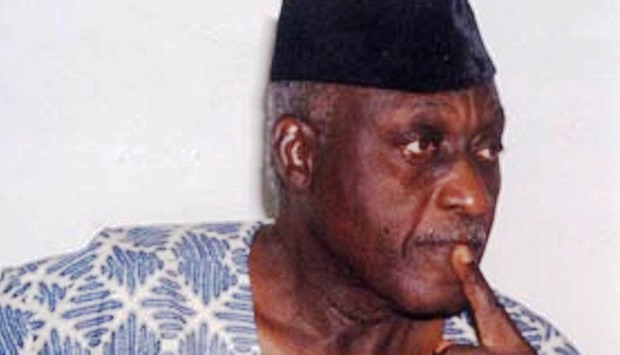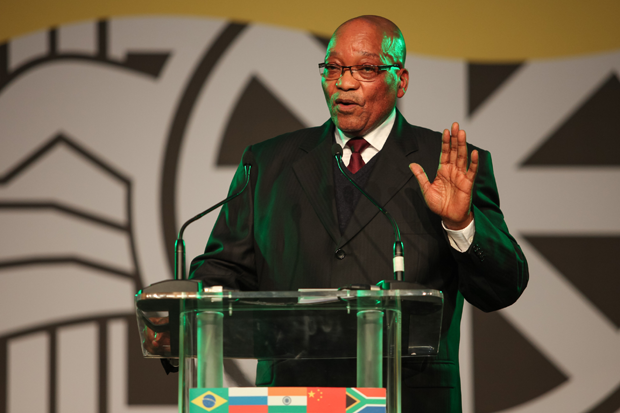24 Sep 2013 | Europe and Central Asia, Italy
The European Court of Human Rights have today ruled in favour of an Italian journalist sued for defamation, citing Article 10 of the European Convention on Human Rights which protects the right to freedom of expression.
Maurizio Belpietro was convicted in Italy on defamation charges for a story published in national newspaper Quotidiano Nazionale in 2004, when he was paper’s director. The story, penned by an Italian senator, accused Italian judges and prosecutors ‘of using political strategies in their fight against the Mafia.’
Two prosecutors sued both Belpietro and the senator in question, arguing the article was defamatory. The latter was acquitted on the basis that he had written the article in his role as a senator. Belpietro, while also initially acquitted, was in 2009 given a suspended 4-month jail sentence, as well as being ordered to pay substantial sums to the plaintiffs. His appeal was dismissed in 2010.
Belpietro took the case to the European Court of Human Rights, which today ruled that the conviction was in violation of Article 10. He was awarded €10,000 in non-pecuniary damage and €5,000 for costs and expenses.
23 Sep 2013 | News and features

Brad Camembert / Shutterstock.com
It never occurred to me, when I started to write that what I was writing was controversial. Much of it grew out of my own feelings and concerns when I was young.
There were few challenges to my books then, although I remember the night a woman phoned, asking if I had written Are You There God? It’s Me, Margaret. When I replied that I had, she called me a communist and slammed down the phone. I never did figure out if she equated communism with menstruation or religion, the two major concerns in 12-year-old Margaret’s life.
But, in 1980, the censors crawled out of the woodwork, seemingly overnight, organised and determined. Not only would they decide what their children could read, but what all children could read. Challenges to books quadrupled within months, and we shall never know how many teachers, school librarians and principals quietly removed books to avoid trouble.
Censorship grows out of fear and, because fear is contagious, some parents are easily swayed. Book banning satisfies their need to feel in control of their children’s lives. This fear is often disguised as moral outrage. They want to believe that if their children do not read about it, their children will not know about it. And if they do not know about it, it will not happen.
Today, it is not only language and sexuality (the usual reasons given for banning my books) that will land a book on the censors’ hit list. It is Satanism, New Age-ism and a hundred other ‘isms’, some of which would be laughable if the implications were not so serious. Books that make kids laugh often come under suspicion; so do books that encourage kids to think, or question authority; books that don’t hit the reader over the head with moral lessons are considered dangerous.
My book Blubber was banned in Montgomery County, Maryland, for ‘lack of moral tone’ and, more recently, challenged in Canton, Ohio, for allowing evil behaviour to go unpunished. But in New Zealand it is used in teacher-training classes to help explain classroom dynamics. Censors do not want children exposed to ideas different from their own. If every individual with an agenda had his or her way, the shelves in the school library would be close to empty.
But I am encouraged by a new awareness. This year I have received a number of letters from young people who are studying censorship in their classes. And in many communities across the country, students from elementary through to high school are becoming active (along with caring adults) in the fight to maintain their right to read and their right to choose books. They are speaking before school boards, and, more often than not, when they do, the books in question are returned to the shelves.
Only when readers of all ages become active, only when readers are willing to stand up to the censors, will the censors get the message that they cannot frighten us.
Judy Blume writes books for readers of all ages. This article was first published in Index on Censorship magazine in 1993
To subscribe to Index on Censorship magazine, including free access to our archive, click here
23 Sep 2013 | News and features

From “Africa’s Subversive Litanies” – Robert Fraser, Index on Censorship Magazine, October 1980
In contemporary West Africa the writer’s shell may occasionally be of his own making, the artifact of inhibition or doubt. Often, however, it is made of harder stuff, as Kofi Awoonor, one of Ghana’s senior poets, discovered to his cost. He was detained in 1977 for suspected collusion in an abortive attempt to remove a government which was itself the product of a military uprising.
The extent of Awoonor’s guilt was giving temporary shelter to a fellow Ewe out of favour with the authorities. Yet at his trial thirteen defence barristers failed to secure his release; their evidence was declared inadmissible before the proceedings had even started. Awoonor’s subsequent detention in Usher Fort did little to mitigate the acute political scepticism which had
earlier driven him to seek asylum in America. He captured the feeling with characteristically sardonic sadness in his poem ‘When My New Passport Came and I was given a Year’:
Oh, I know you curse my name
and say that I have fled; you call for
silence from my parched winter lips;
I received the other day your passport
with the one year stamp
and the order that I cannot renew
myself in alien lands.
But I renew myself here
in winter’s beginning day
awaiting the coming of the sun
so that your son will be ready
for the snake-shrouds of homecoming.
23 Sep 2013 | News and features, Politics and Society, South Africa

Jacob Zuma (Photo: Jordi Matas / Demotix)
South Africa’s ruling African National Congress (ANC) has changed tack in its campaign to curtail the media. In a turn to what could be called “censorship lite”, the iron fist of state security intervention is being augmented by the velvet glove of calls for “patriotic” journalism.
After President Jacob Zuma’s ascendancy to the highest position in the ANC in 2007, various attacks have been launched on the private and public media. While factional battles for political control were being fought at the public broadcaster, an investigative journalist was illegally arrested after exposing corruption involving the newly appointed police commissioner. Despite concerted resistance across the social spectrum, the Protection of State Information Bill (dubbed the “Secrecy Bill”) was adopted, which will all but stop whistle blowing and investigate journalism into state corruption. And a media appeals tribunal has been mooted that could mete out punishments ranging from fines to jail time to media houses and individual journalists who offend politicians. While Zuma has referred the Secrecy Bill back to parliament for minor adjustments before signing it into law, the establishment of the tribunal is due to be considered by the country’s parliament, as per a policy decision of the ANC.
In recent times, individuals known to be close to Zuma and the ANC have gained greater influence in the media. This development seems to have precipitated a new softly-softly approach of edging the private media towards news reporting that is more amenable to dominant political interests. Zuma recently made a call for “patriotic journalism” which dovetails with a number of other initiatives by his allies in the media. The public broadcaster and two private media companies have all vowed to shift the media away from reporting on the “opposite of the positive”, as Zuma put it.
Zuma’s call was made in an off-the-cuff address at parliament. He told journalism students that, “When I go out, people envy South Africans, they wish they were South Africans because they say we are doing so well, we are succeeding… they love it. But when I am in South Africa, every morning you feel like you must leave this country because the reporting concentrates on the opposite of the positive.”
He asked the students: “Who do you think in reality you serve when reporting: the interest of the public that you claim, as the media you stand for, or the interest of the owners and managers of the paper? What is it that you think is happening, particularly in a country that is supposed to be an example with vibrant democracy, transparency, high morals, everything. How do we handle this?” Zuma expressed the hope that the South African media would learn from Mexico’s “patriotic journalism” which avoids reporting on crime and rather “markets” the country to foreigners.
His utterances follow a call by the acting chief operating officer of the South African Broadcasting Corporation (SABC), Hlaudi Motsoeneng, that 70% of the public broadcaster’s news reports should be positive. He told the Mail and Guardian that, “we want to concentrate more on positive stories, rather than to put everything in a negative way. Before you become a manager at the SABC, you first have to be a citizen of this country. You should love this country… The message I put out very strongly at the SABC is to think about the positive when people go out and do stories. The difference is our own citizens are tired of crime and tired of people talking about negative things.” Motsoeneng is a known Zuma acolyte who has controversially held onto his post after being dismissed by the previous SABC board.
Meanwhile, businessman Iqbal Survé, who enjoys close ties with the ANC, became the new owner of Independent News & Media, which comprises the largest collection of English-language daily and weekly newspaper titles in the country. He explained part of the rationale for the purchase as being: “We felt the media was not representing the positive aspects of South Africa. What we are reading about is not what we see in South Africa.”
During this same period, Indian business associates and friends of the Zuma family launched ANN7, a new satellite news service. The Gupta family recently provoked outrage for using a military air base near South Africa’s capital Pretoria to fly in guests from India for a private wedding function. The former head of government communications, Jimmy Manyi, hosts a talk show on the channel. Manyi is no stranger to controversy, having spearheaded attacks against the media during his time as government spokesperson, such as using state advertising spending to put pressure on media outlets. In an interview about his new job as talk show host, he declared South Africans to be tired of negative press and that ANN7 will provide an alternative.
ANN7’s broadcasts have been riddled with more than the usual share of start-up problems, leading to much ridicule. The company also had to withdraw a billboard advertisement describing competitors as “old farts”, after a complaint from the South African Older Persons Forum. Postings of “ANN7 bloopers” on YouTube led to a copyright complaint from ANN7 and the removal of the clips, but they can still be viewed elsewhere.
The mirth that greeted ANN7 was also evident in responses to Zuma’s call, both in articles and tweets. More serious critiques included an article from Media Monitoring Africa, while others pointed out that Mexico has one of the worst press freedom records in the world.
Thus far, velvet glove of censorship lite has not succeeded in massaging the established private media into a more “patriotic” stance. This may change when the iron fist of criminalisation of critical journalism finally comes crashing down.
This article was originally posted on 23 Sept 2013 at indexoncensorship.org



